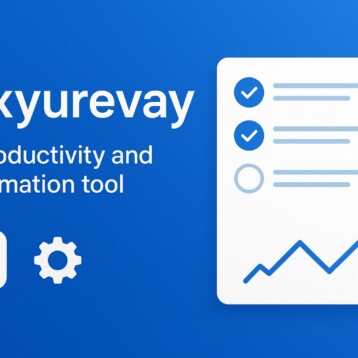Unfortunately, many dishonest people in the world engage in fraud and pose a severe threat to both companies and individual users. Internet privacy and security issues remain critical to a global audience. Although professionals recognize the problem and new solutions appear, no tool would guarantee one hundred percent reliability. There is a reaction for every action, and this “catch-up game” continues from year to year.

The security and protection of confidential information is an ongoing and significant concern around the world. The ubiquity of technology makes it easy to collect personal information. Also, users share on their own, on social networks, instant messengers, email, and other online platforms.
In the modern world, it is not surprising that everything is monitored: smartphones, tablets, computers, smart devices, software, etc. On the one hand, companies collecting information do everything to improve a particular service, make this wonderful world even better, and improve user experience quality. On the other hand, they make money from users, analyze behavioral factors, form characteristic patterns, and manipulate to achieve maximum benefits.
Recent polls have shown that over 60% of users have experienced a data breach in one way or another. Most often, hackers hunt for the following types of information:
- Credit card details
- Bank account data
- Social media accounts
Lack of online security measures often leads to the theft of money, sending annoying spam messages on behalf of an unsuspecting user, compromising private and personal information, getting it into the field of view of third parties, and using it against the owners themselves.
What is an anti detect browser?
Even though no one and nothing can guarantee absolute protection, there are tools with which you can minimize risks. Anti detect browsers can offer privacy. They are similar to the usual Google Chrome, Mozilla, and so on. Such browsers guarantee anonymity by spoofing data and customizing the user’s digital fingerprint while leaving a minimum of traces on the web. We can confidently say that the browser and its effective use practically exclude the possibility of being detected.

Anti detect browser will allow you to open a different account in each tab, using personal digital prints for it. Spam filters of the visited resource will not be able to identify you as the same user. Cookies will be different for each account, and their values will not overlap in any way.
The anti detect browser has protection against Flash and WebRTC plugins, and sites will never know if you are using a proxy and will not be able to get your browser’s characteristics for identification.
Anti detect browser is elementary to learn because the interface is no different from a regular browser, and the ability to save sessions will help you open your accounts without re-authorization at any time. Anti detect browsers are usually developed on the chromium engine, so you will not look like a black sheep on the Internet but instead merge with the general mass of users.
What digital fingerprints does an anti detect browser hide?
Websites track a massive number of parameters. One of the most common ways to obtain data is through the use of cookies. Cookies are small text files on your computer containing information to improve your experience on a particular website.

The browser loads cookies every time you visit sites, and completely different types of files are used:
- preferences (include the display of the interface, its appearance, and available functionality, as well as the region and language settings);
- security (used to prevent unauthorized access);
- processes (these files allow you to ensure the correct operation of the site);
- advertising (for example, to serve personalized advertisements);
- session state (information about how the interaction with the content occurs).
When you visit the website, it checks the cookies on the computer, thereby generating individual settings. Besides, cookies allow us to determine whether you are a new visitor or not. Thanks to the anti detect browser, you can create a user without cookies or use others.
Another way to track a person on the Internet is through an IP address. In simple words, an IP address is a set of numbers used to identify a device on the Internet. It can track which online resources you visit, your accounts, and geolocation. Using an anti detect browser with a proxy, you can change this parameter as well.
Also, a digital fingerprint has “hidden” data. Sites poll the software for specific and unique browser settings. They analyze the following information:
- User-Agent (which software, which operating system, which software versions, and much more);
- Browser language (English, Chinese, Spanish, and any other);
- Timezone;
- Screen size and color parameters (color depth);
- Supported HTML5 technologies (each software has its differences);
- Do Not Track setting;
- Plugins, their characteristics;
- Fonts, their drawing (depends on many parameters: processor, video card, preinstalled programs, libraries, and others).
Based on this information, sites form an identifier (sequence number) for each user. Then they fix this parameter and use it for their purposes. Based on a study by the Electronic Frontier Foundation, the browser’s uniqueness is about 90%. The probability of identifying a person is too high. It’s good that there are anti detect browsers like GoLogin that help hide the user’s identity.
Conclusion
Fingerprinting technology can be interpreted as a significant vulnerability in information security and, at the same time, as a violation of users’ privacy and confidentiality. We visit specific sites; many of us have personal settings in the browser: fonts, plugins, bookmarks, add-ons and extensions, screen resolutions, window arrangement, navigation buttons placement, etc. Combining these elements is a unique digital fingerprint of the device and can be conditionally compared with a person’s biometric data, namely, real fingerprints.
In this case, the Internet user can be uniquely identified without his knowledge and consent. The concept of anonymity on the Internet, which provides a feeling of freedom, inaccessibility, and impunity, will not only seem imaginary; it will be so. It simply won’t exist. Therefore, anti detect browsers are necessary for every user who wants to leave personal data private.










